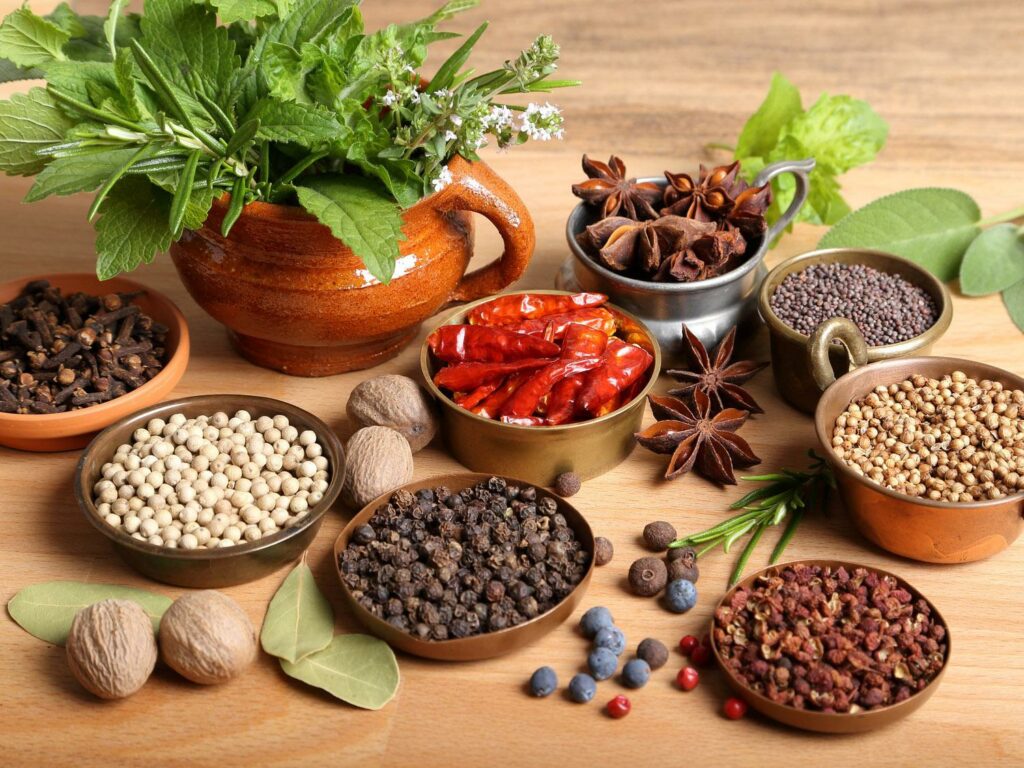The liver is one of the most vital organs in the human body. It performs various functions, including detoxification, metabolism, and synthesis of essential proteins. However, due to factors such as poor diet, alcohol consumption, and exposure to toxins, the liver can become overloaded and damaged. Fortunately, there are several herbs known for their beneficial effects on liver health. In this comprehensive guide, we will explore the top 10 herbs for liver health, along with their benefits and precautions.
Milk Thistle (Silybum marianum):
Milk thistle is one of the most well-known herbs for liver health. It contains a compound called silymarin, which has potent antioxidant and anti-inflammatory properties. Silymarin helps protect liver cells from damage and promotes their regeneration. It also aids in detoxification and may help improve liver function in individuals with liver diseases like hepatitis and cirrhosis. Precautions: Milk thistle is generally safe, but some people may experience mild gastrointestinal upset. It may also interact with certain medications, so consult a healthcare professional before use.
Dandelion Root (Taraxacum officinale):
Dandelion root is often used as a natural liver tonic. It stimulates bile production, which aids in digestion and the elimination of toxins from the liver. Dandelion root also has diuretic properties, helping to remove excess water and reduce bloating. Additionally, it contains antioxidants that protect the liver against oxidative stress. Precautions: Individuals with gallbladder issues or allergies to related plants like ragweed should exercise caution. It may also interact with certain medications, particularly diuretics and blood thinners.
Turmeric (Curcuma longa):
Turmeric is a vibrant yellow spice commonly used in cooking, and it contains a powerful compound called curcumin. Curcumin has anti-inflammatory and antioxidant properties that benefit liver health. It helps reduce inflammation in the liver and prevents the accumulation of fatty deposits. Turmeric also aids in the production and flow of bile, supporting optimal liver function. Precautions: Turmeric is generally safe, but high doses may cause stomach upset in some individuals. It may also interact with certain medications, so consult a healthcare professional before use.
Artichoke (Cynara scolymus):
Artichoke is a thistle-like vegetable known for its liver-protective properties. It contains a compound called cynarin, which stimulates bile production and aids in fat digestion. Artichoke also has antioxidant and anti-inflammatory effects, reducing liver inflammation and protecting against damage. It may help improve liver function and alleviate symptoms of liver diseases such as jaundice and fatty liver. Precautions: Artichoke is generally safe when consumed as food, but concentrated extracts may cause gastrointestinal upset in some individuals.
Schisandra (Schisandra chinensis):
Schisandra is an adaptogenic herb used in traditional Chinese medicine. It helps support liver health by enhancing the liver’s ability to detoxify harmful substances. Schisandra also has antioxidant and anti-inflammatory effects, reducing liver inflammation and preventing damage. It may improve liver enzyme levels and promote overall liver function. Precautions: Schisandra is generally safe, but high doses may cause digestive upset in some individuals. It may also interact with certain medications, so consult a healthcare professional before use.
Burdock Root (Arctium lappa):
Burdock root is a detoxifying herb that supports liver health by promoting the elimination of toxins. It enhances liver function and stimulates bile secretion, aiding in digestion and detoxification. Burdock root also has anti-inflammatory properties and may help protect the liver against damage caused by free radicals. Additionally, it supports the growth of beneficial gut bacteria, which further promotes overall liver health. Precautions: Burdock root is generally safe when consumed as food, but it may cause allergic reactions in some individuals.
Licorice Root (Glycyrrhiza glabra):
Licorice root has been used in traditional medicine for centuries due to its numerous health benefits. It contains compounds that have antioxidant and anti-inflammatory properties, protecting the liver from damage. Licorice root also aids in detoxification and supports optimal liver function. However, it is important to note that prolonged use or excessive consumption of licorice root can lead to high blood pressure and potassium depletion, so it should be used cautiously and under the guidance of a healthcare professional.
Globe Artichoke (Cynara cardunculus):
Globe artichoke is closely related to the artichoke mentioned earlier but is a different species. It shares similar liver-protective properties, including bile stimulation, detoxification support, and antioxidant effects. Globe artichoke may help improve liver function, reduce liver enzyme levels, and promote the overall health of the liver. Precautions: Globe artichoke is generally safe, but it may cause allergic reactions in some individuals.
Greater Celandine (Chelidonium majus):
Greater celandine is an herb that has traditionally been used to support liver health. It contains several active compounds with hepatoprotective properties. Greater celandine aids in bile production and flow, facilitating the elimination of toxins from the liver. It also has anti-inflammatory and antioxidant effects, helping to reduce liver inflammation and protect against damage. Precautions: Greater celandine should be used with caution and under the guidance of a healthcare professional, as it may interact with certain medications and high doses can be toxic.
Ginger (Zingiber officinale):
- Ginger is a versatile herb with numerous health benefits, including support for liver health. It has anti-inflammatory and antioxidant properties, which help reduce liver inflammation and protect against oxidative stress. Ginger also aids in digestion and may improve liver enzyme levels. It can be consumed fresh, as a spice, or in the form of ginger tea to reap its liver-protective benefits. Precautions: Ginger is generally safe, but high doses may cause gastrointestinal upset in some individuals. It may also interact with certain medications, so consult a healthcare professional before use.
- In conclusion, these 10 herbs offer valuable benefits for liver health. They can help protect the liver from damage, reduce inflammation, support detoxification processes, and improve overall liver function. However, it is important to exercise caution and consult a healthcare professional, particularly if you have any pre-existing medical conditions or are taking medications. With proper use and precautions, these herbs can be valuable allies in maintaining a healthy liver and promoting overall well-being.
- Inspector Lestrade Marijuana Strain - September 22, 2023
- How to Use HHC-P DISPOSABLE VAPE - July 20, 2023
- The 10 Best Herbs for Liver Health: Benefits and Precautions - July 14, 2023

